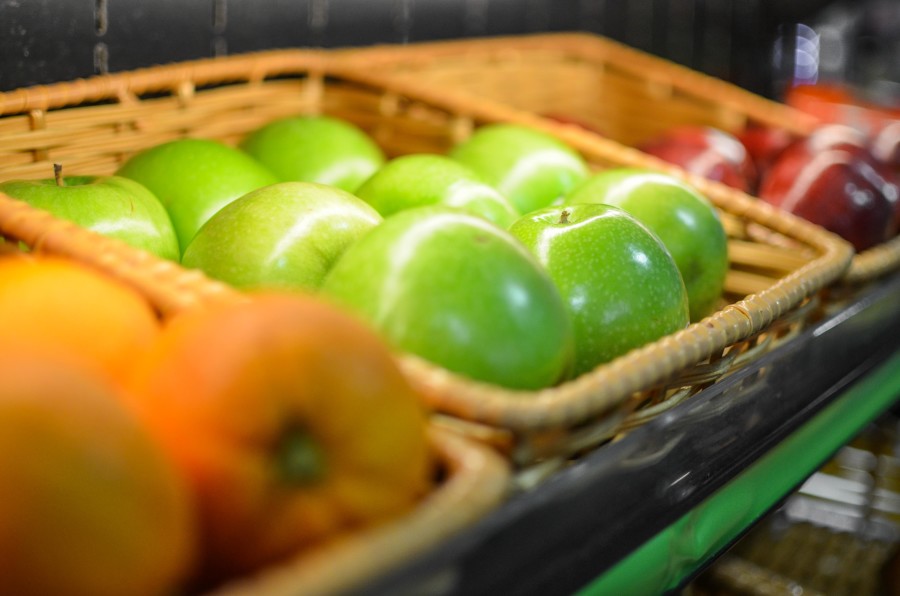 After two columns about one or another aspect of sex, I write now about another object of human desire: food.
After two columns about one or another aspect of sex, I write now about another object of human desire: food.
Every time I walk into the cafeteria of our Alumni Memorial Union, I pass a place that represents the core of what is wrong with the American diet.
Standing just outside the dining hall, I turn to face a quaint, organic grocery. It’s stocked with fresh fruits and vegetables, multigrain breads and cereals, nuts, real fruit juices and even some moderately sweetened or salted treats. Everything seems to be made from as close to the fertile earth as possible. Even the utensils are made from natural plant products.
To my left, a room filled with nothing but vending machines hums with refrigerators constantly working to chill rows of soft drinks, candy, processed pastries and a particular glazed cinnamon bun with no expiration date. The place is a wonder of food chemistry that confers eternal life on practically anything.
Stand at this point and you’ll find you are in the midst of a war between a commercial, human-feed industry and a smaller, homespun battalion of nature’s raw, stone-age ingredients.
But factory food is winning—handily. The evidence is in the prices. A small organic apple costs almost the same as a packaged pastry with apple filling. Getting more for less from the factory means the demand for pseudo-food is strong, while small, struggling suppliers of real food must charge more to stay afloat.
Harsh economics aside, this is a problem that our pocketbooks and waistlines must not tolerate. It’s time to revolt. It’s time to demand wholesome, honest food. Pseudo-food is killing us, and we must stop it.
Our first battle, however, begins from within. Each of us possesses a potentially self-destructive craving for the deadly trinity of sugar, fat and salt. This is the thesis of former FDA commissioner Dr. David A. Kessler whose book, “The End of Overeating,” ought to be a training guide for anyone attempting to lose weight or keep it off. “Why,” he asks, “does the chocolate cookie have so much power over me?”
The answer lies in the ability of sugar, fat and salt to tap into our brain circuitry through stimulation of “reward” neurons. The combination of these ingredients in food makes them particularly potent and irresistible. Eat one Jimmy John’s cookie and your brain won’t let you forget that “bliss point” of sugary fatness. Like nicotine, foods of this type can make you crave more.
The food and restaurant industries are aware of this weakness in all of us, and they have accordingly engineered food to keep us hooked on their products. There’s a common restaurant adage: add cheese and bacon to a dish and everyone will love it.
These irresistible foods are taking an undeniable toll on American public health. Diabetes, cardiovascular diseases and obesity are widespread and particularly vicious among the poor and urban populations.
Driving through Milwaukee’s south side, for example, I counted nine fast food restaurants before coming across a market with a respectable offering of fruits and vegetables. Other urban markets have a mere bin of token produce, wilted and fly-covered, sending shoppers running to the frozen pizza aisle.
You have a right to honest, nutritious food. While prices may be prohibitively high for many, they will come down if we change our appetites and demand better food. In time, a run through Whole Foods won’t cost a whole paycheck. As our neuronal food circuits change, so will the food industry.
Then we can turn off the vending machines for good.






JP • Sep 15, 2010 at 12:39 am
Yes! You’re absolutely right on this one. We need to dump the junk and move back to the stone age. Simple food to solve complex health issues. Well written and argued.